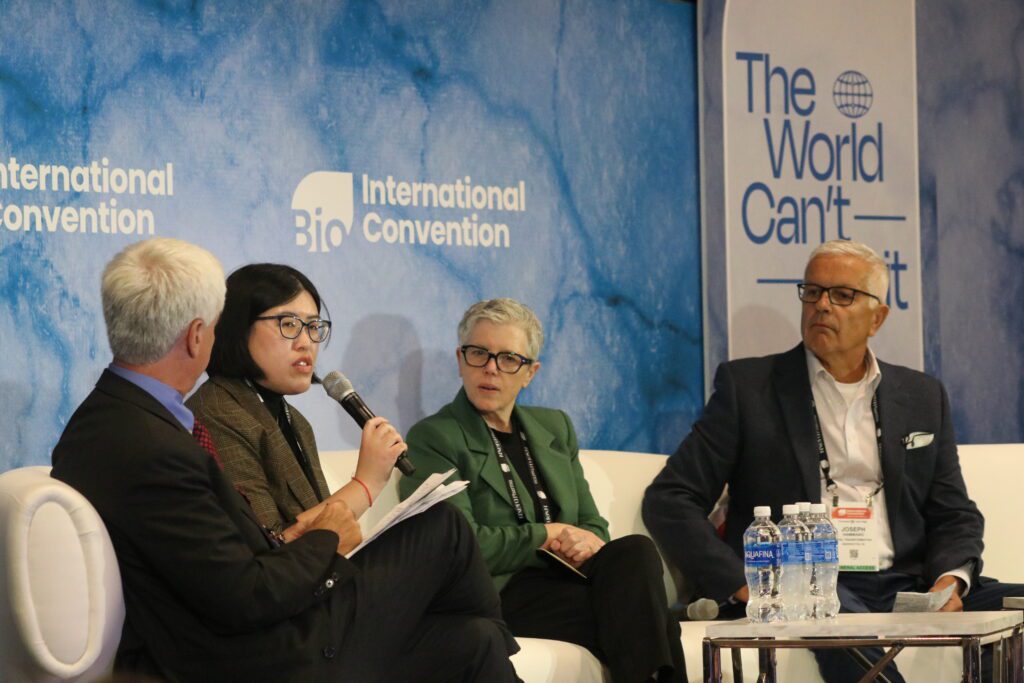As antimicrobial resistance (AMR) continues to threaten global public health, its impact on cancer patients is a growing, often overlooked crisis.
Patients with cancer are particularly vulnerable due to weakened immune systems from treatments. At the 2025 Biotechnology Innovation Organization (BIO) International Convention in Boston, experts discussed the urgent need for better access to treatments, better diagnostics, and collaboration in addressing this critical issue.
One physician’s story
Christina Yen, M.D., infectious diseases specialist and medical director of antimicrobial stewardship at Maine Health Medical Center, shared an impactful example of how access issues can exacerbate the already complex issue of AMR.
She told the story of a patient undergoing chemotherapy for leukemia who started exhibiting joint pain, initially thought to be the onset of arthritis. However, Dr. Yen soon realized it was a fungal infection in her joints that took advantage of her suppressed immune system.
“It was taking a very long time to identify not only the fungus, but also what it was susceptible to,” Dr. Yen recalled. “And the challenge with that was also because she’d been on an antifungal prophylactic the entire time to protect her from exactly this event.” So, the fungus was not only going to be difficult to treat, but also could be resistant to the antifungal meant to protect her and, potentially, the entire class of antifungals.
Dr. Yen recommended a durable IV so the patient could administer a powerful antifungal at home. She was surprised when the patient said, “No can do.”
The patient explained that the IV had a five-pound lifting restriction, but she lived in a small cabin in rural Maine. “In the Maine winter is I chop wood to keep my home warm…You choose how you’d like me to die, either from being frozen to death or from this.”
Luckily, Dr. Yen was able to keep her patient in the hospital as they treated her.
Dr. Yen’s experience highlights two larger issues: the need for better access and the need for better diagnostics. These gaps leave many patients, especially those in rural or underserved areas, without the care they need.
The growing problem of AMR in hospitals
Joseph Hammang, Ph.D., Partner at Vital Transformation, LLC, discussed the findings of a forthcoming report on instances of AMR in patients in hospitals. Instances of AMR are higher than expected. In oncology situations, this reflects not only the immune suppression in patients, which makes these patients more susceptible to infection, but also, ironically, the success of their treatments.
In short, if a patient with cancer is still alive, that is a win, but it also means that they have a wider window for infection.
“I’ve been doing infectious disease and cancer care for my entire career, and there’s an important dance and a couple of things that happen in that environment,” said Kieren Marr, M.D., MBA, FIDSA, President and Chief Medical Officer at Elion Therapeutics, Inc. “One is that oncologists really know their patients, and they know a heck of a lot about general internal medicine. And during the 30 years that I’ve been in the field, their infectious diseases have gotten a heck of a lot more complicated.
“There’s also an environment where the oncologists are very protective about what infectious disease doctors they are going to let near the patients,” Dr. Marr continued.
In some cases, when a cancer treatment has to be paused to address an infection, that lost time, in the case of aggressive cancers, can be deadly.
And therein lies the critically important point at the heart of the panel: AMR rarely exists in a vacuum, and instead often rears its ugly head in the midst of treating a different disease.
As the panelists made clear, addressing AMR requires more than just developing new drugs; it requires collaboration, innovation, and a commitment to improving patient care at every level. From better diagnostic tools to more accessible treatments, the fight against AMR and its impact on cancer patients is just beginning.




